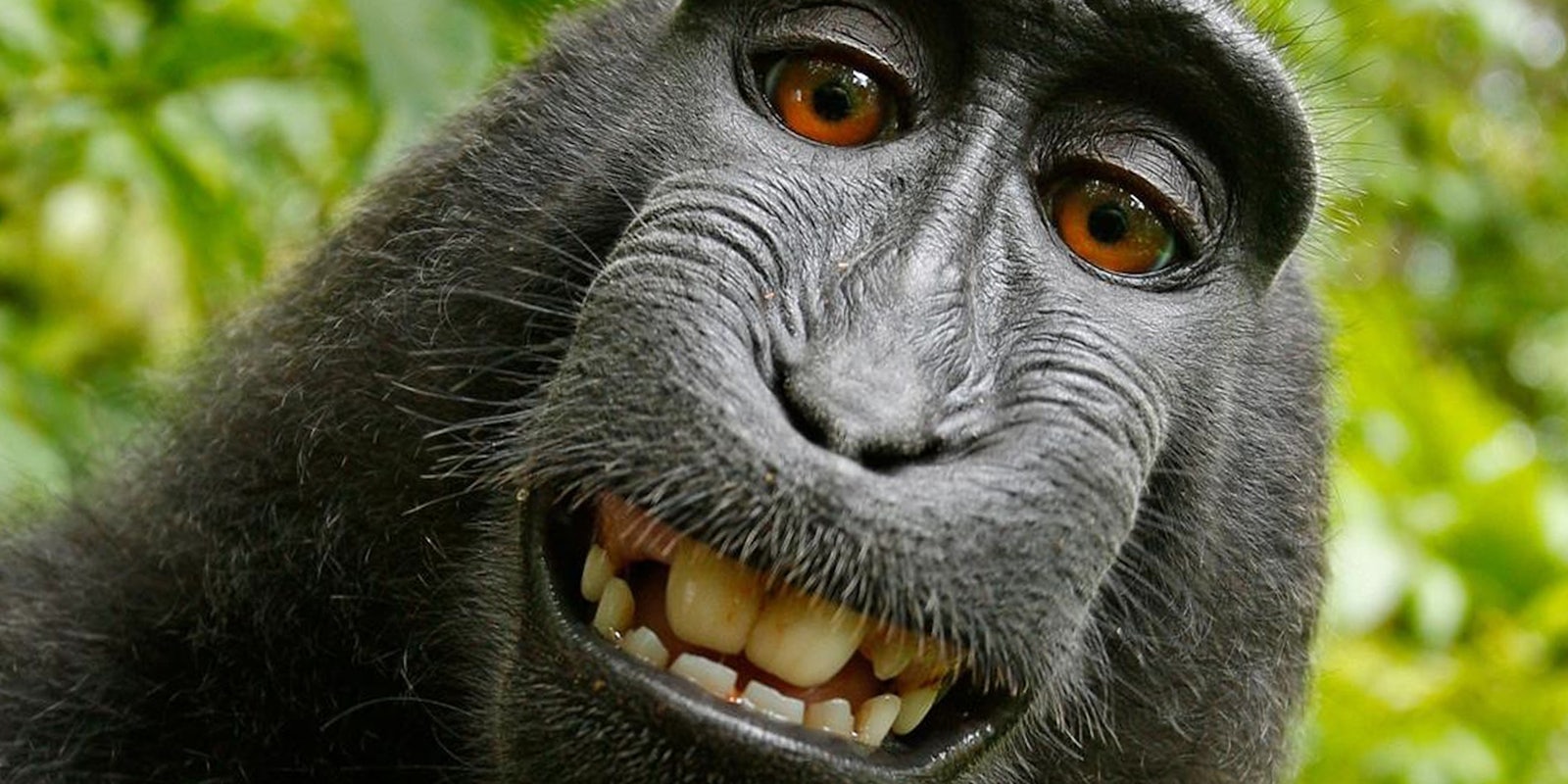Finally, a judge has thrown out a People for the Ethical Treatment of Animals’ claim that the infamous “monkey selfie”—in which a crested macaque snapped a picture of its own face—should be copyrighted to the animal.
U.S. District Judge William Orrick dismissed PETA’s claim Friday.
The whole controversy over just who owns the rights to the photo began in 2011, when nature photographer David Slater went to a crested macaque-heavy jungle region of Indonesia. One of the animals grabbed his camera, he said, taking one of the most iconic photos of the year.
The image ended up on Wikimedia Commons, the Wikipedia-affiliated repository of Creative Commons-licensed images. Slater then tried, unsuccessfully, to get the photo taken down. He argued that since the monkey used his camera, he owned the rights to the photo, and said the fact that he didn’t have exclusive rights hampered his business. But selfie copyright is a fairly straightforward legal concept: The person who actually takes the photo can claim the rights.
“Person,” of course, is the key word there. The U.S. Copyright Office made it explicit in 2014. In only its third version since 1973, its Compendium of U.S. Copyright Office Practices explicitly stated that “a photo taken by a monkey” was one of several examples of a work created by natural elements, and thus ineligible for copyright.
That bit seemed lost on PETA, which claimed in court that the monkey in question deserved the same intellectual property rights a human receives. It’s not at all clear, however, that the monkey PETA defended, a 6-year-old male named Naruto, was even the same one that took the photo; many experts identified that monkey as a female.
“The case has been doomed, not necessarily because of the Compendium, but because the statutory requirement of authorship has always been understood by courts to imply human authorship,” Matt Schruers, a professor of intellectual property law at Georgetown University, told the Daily Dot. [A]nd there’s no basis—other than PETA’s policy arguments—for ruling to the contrary.”
PETA didn’t immediately respond to request for comment. In a statement released on Jan. 7, after its previous setback, however, general counsel Jeff Kerr said, “My mentor told me that in social-cause cases, ‘First, you lose, you lose, you lose. Then you win.’ And we are treading that path for animal rights in the hope that we may lose, lose, lose, but that we will one day win.”
Photo via a macaca (PD)/Wikimedia Commons


